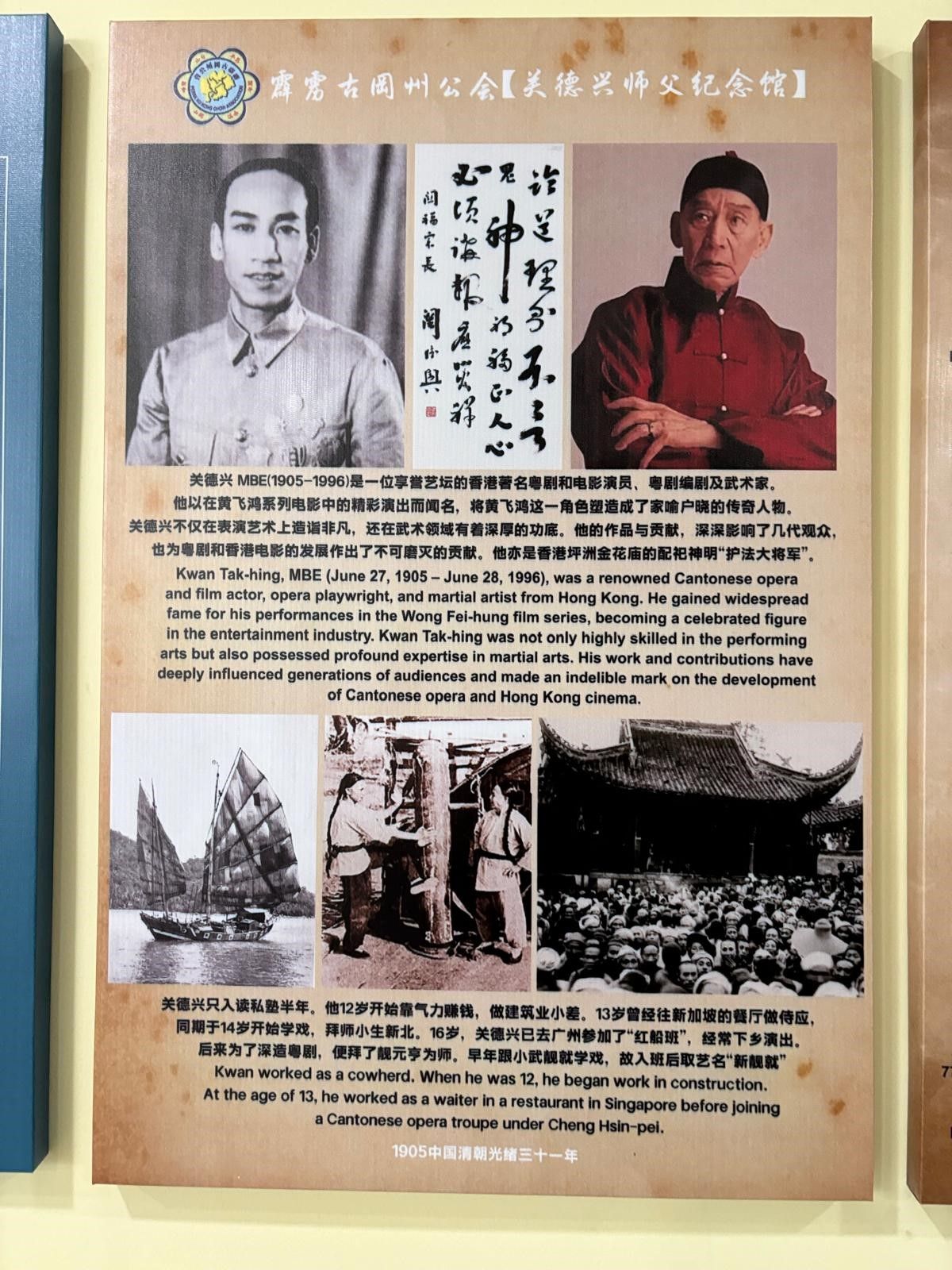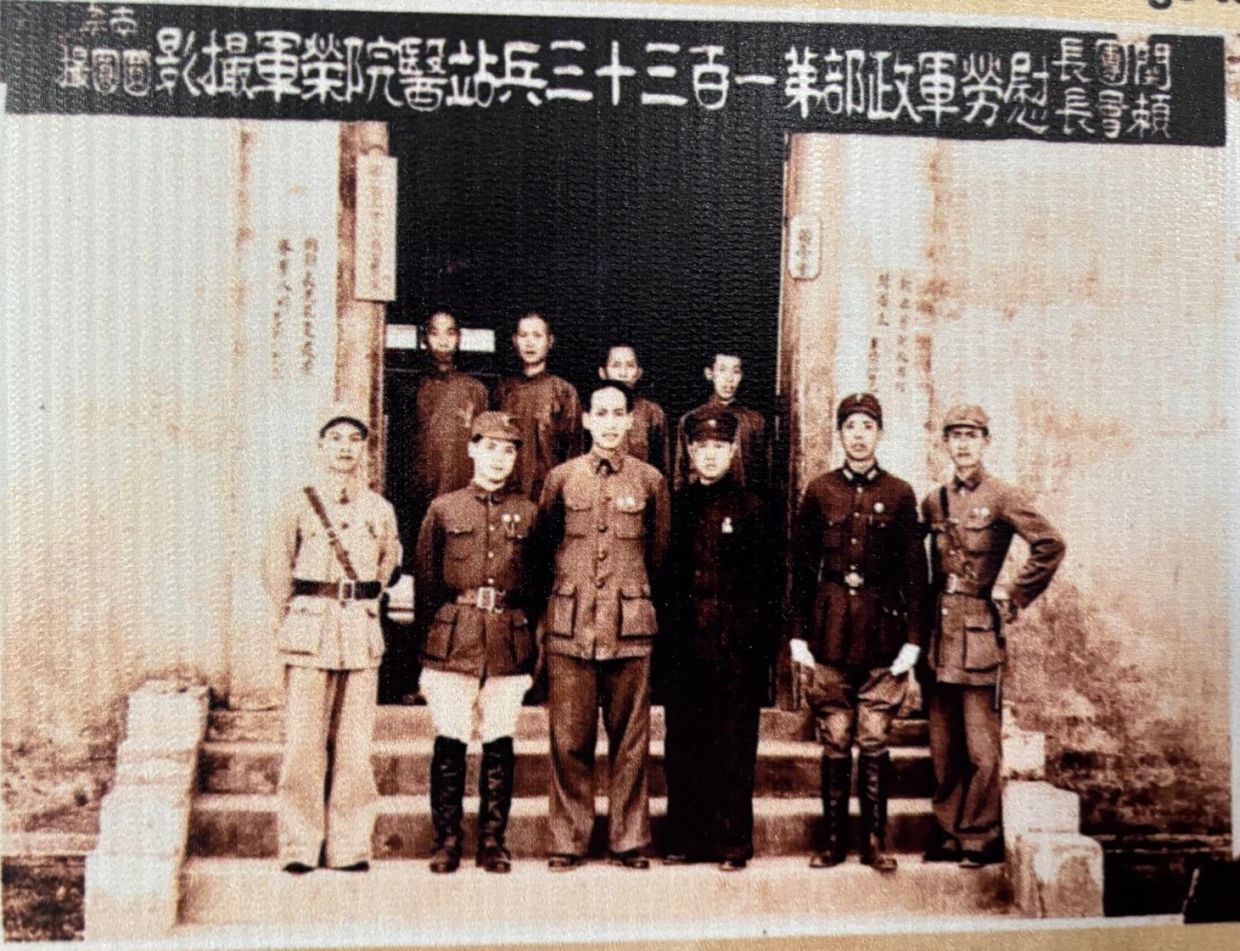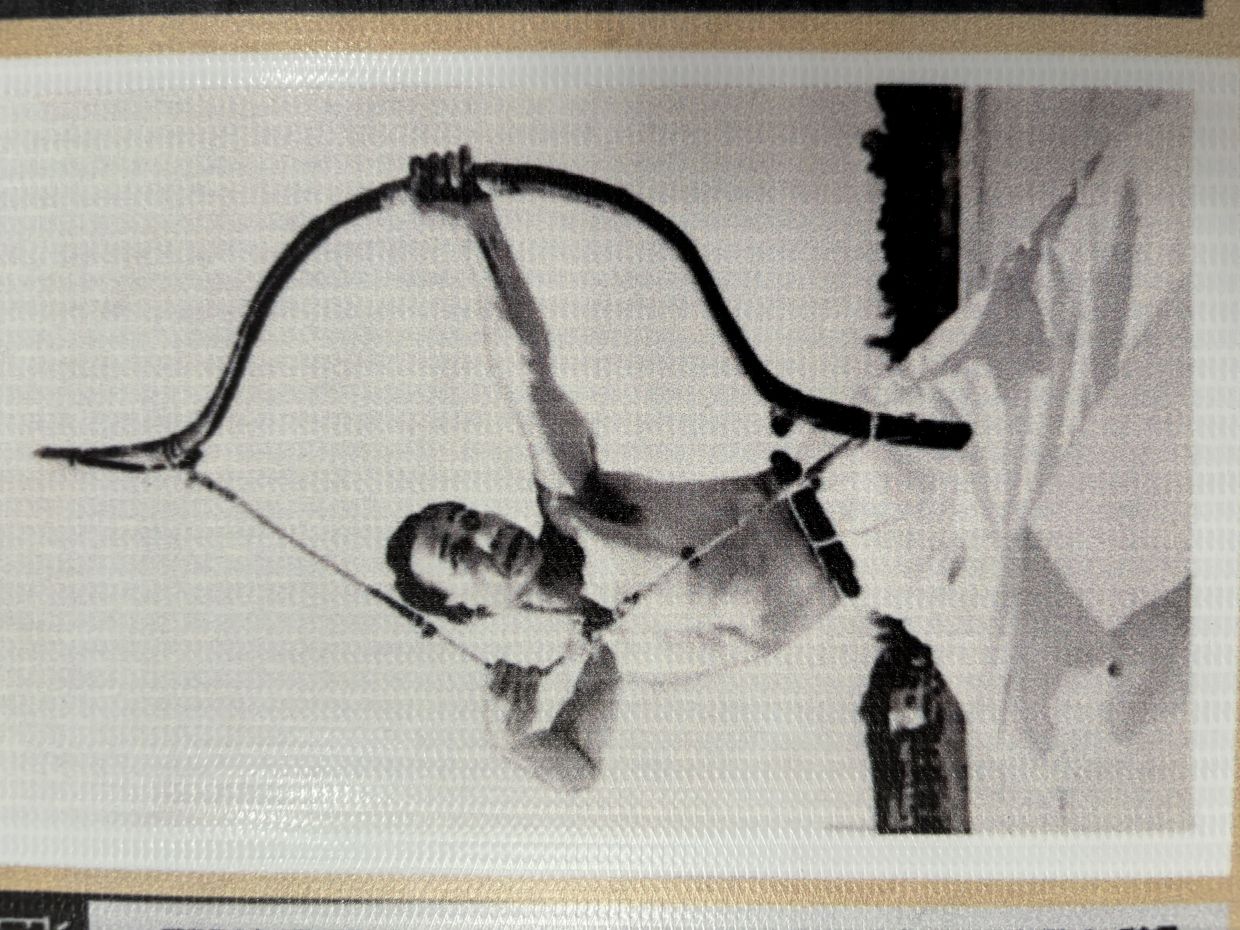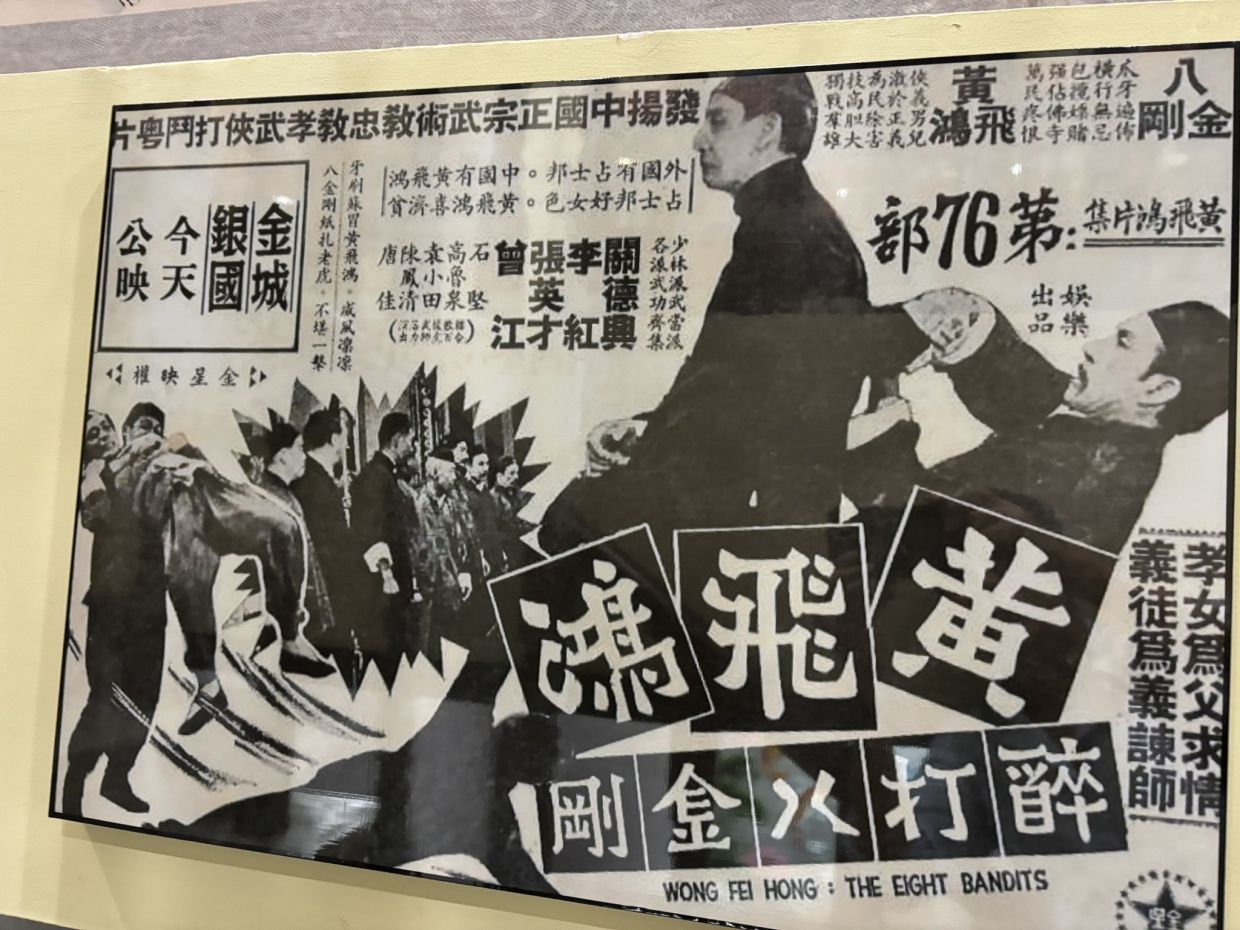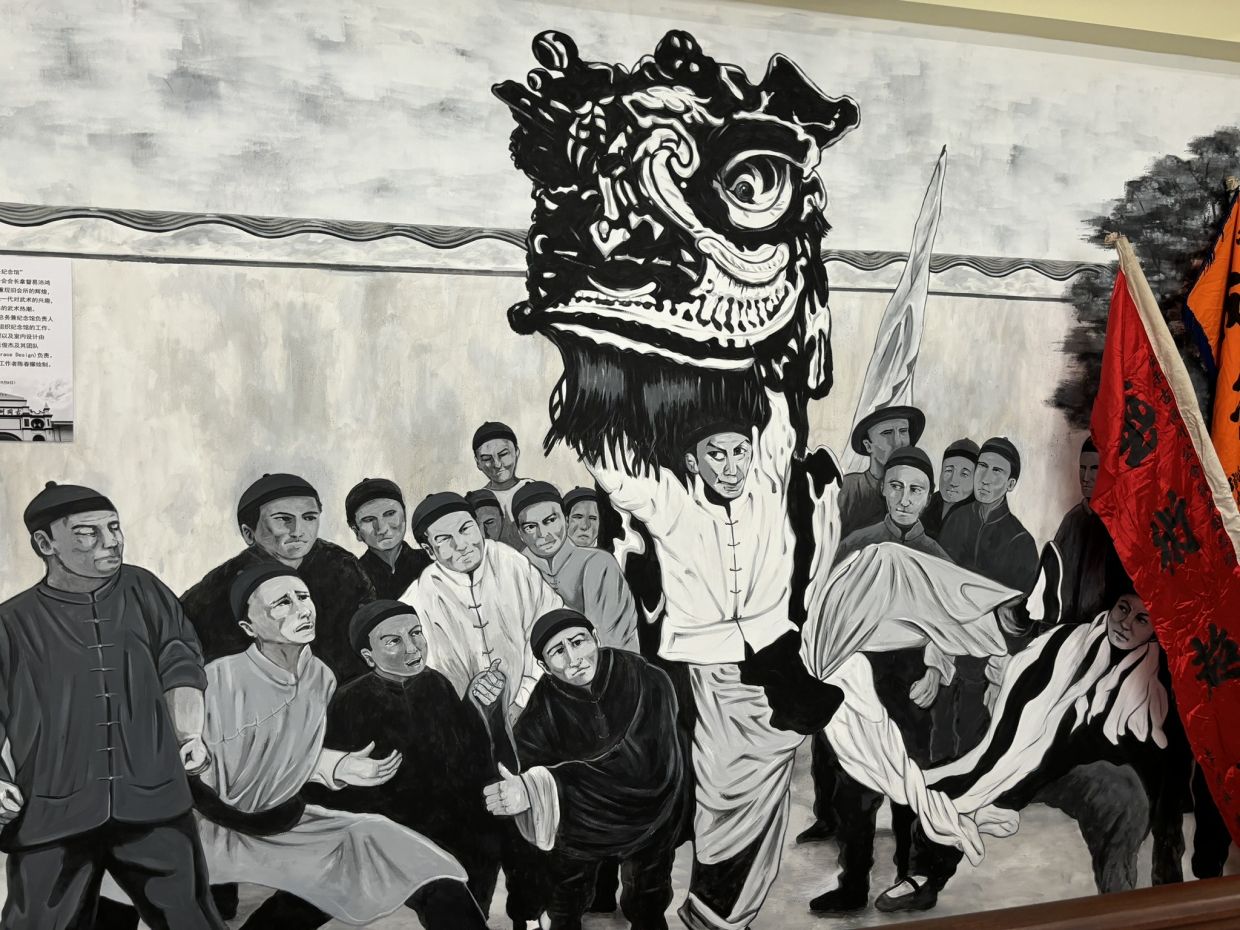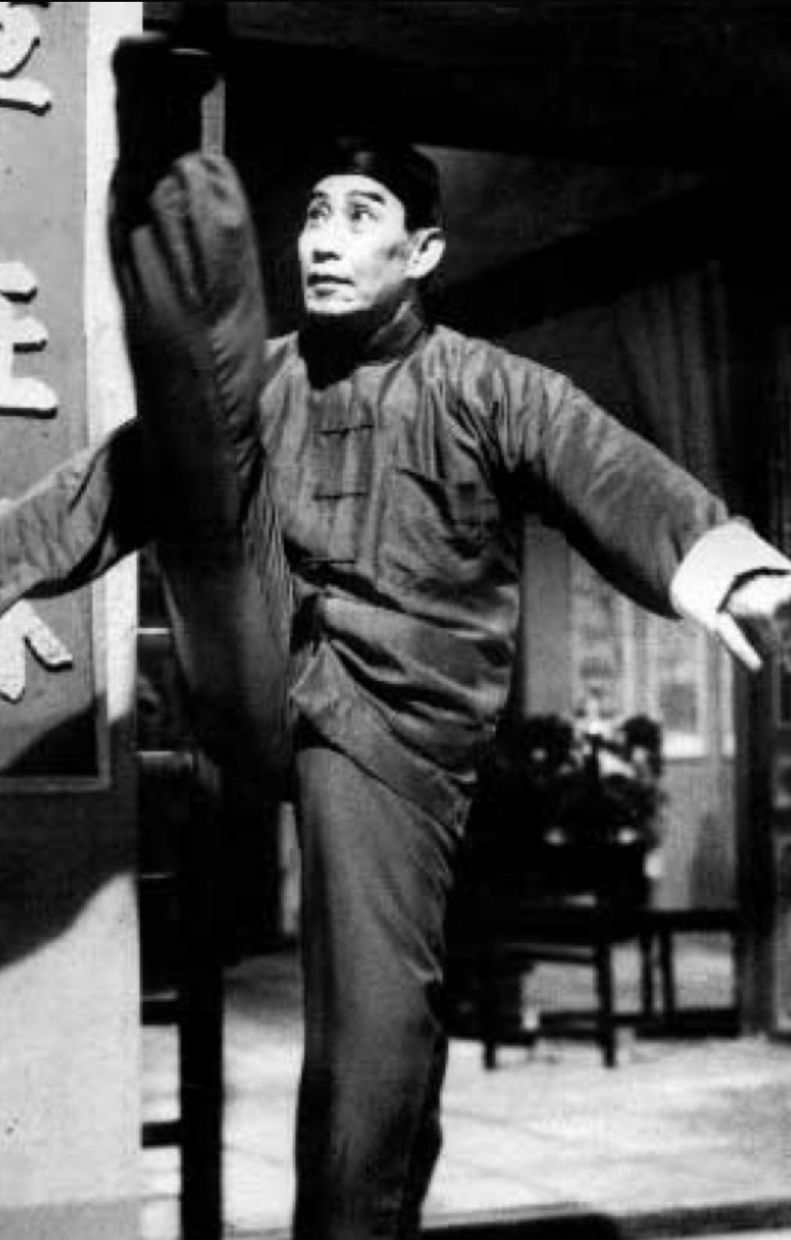At the reopening of the Kwan Tak-hing Memorial Hall recently, attended by over 300 guests from around the world. Photo: Emily Lowe
Famous for his martial arts prowess and charitable spirit, Wong Fei-hung has been widely respected as a legendary folk hero for over a century. His "Hung Ga" school of kungfu earned him deep reverence from both friends and foes, inspiring admiration and attracting a global following of fans and students.
Unknown to many, Wong was also highly knowledgeable in traditional Chinese medicine. During the dark and turbulent years following the Opium Wars, his clinic – Poh Chi Lam in Guangzhou, China – provided free treatment and medicine to thousands of poor people from near and far. Wong's life has been popularised in books and films for more than a century.
The actor most famously associated with the role of Wong is martial artist Kwan Tak-hing, who portrayed him in 77 films over 40 years, leaving an indelible mark on cinematic history.
Like Wong, Kwan exemplified admirable qualities such as justice, social conscience, and moral courage. In his films, Kwan always fought for the poor, the oppressed, and the underdogs of society. Often, he risked his life to confront corrupt officials and powerful men.
Born in Guangzhou in 1905, Kwan lost his father at a young age and had to become a cowherd early in life. Financial hardship forced him to leave home at 13 to work as a waiter in a restaurant in Singapore.
He later joined a Cantonese opera troupe where he honed his acting skills and performed acrobatic lion dances. A dedicated martial arts student, Kwan also trained extensively under kungfu masters, including Wong Fei-hung's students.
Kwan made his film debut in Romance Of The Songsters while in the United States in the early 1930s. His first martial arts film, Knight Of The Whip (1936), brought him immediate success. His expert kungfu displays and realistic performances earned praise from fans and critics alike. However, his acting career was interrupted by World War II.
As the Japanese army advanced through China during the war, Kwan, like many, was outraged by the atrocities committed, such as the "Rape of Nanking". Instead of continuing his acting career, Kwan and his friends entertained Chinese soldiers near the front lines to boost morale. He was awarded an honorary rank of Captain in the Kuomintang army, and the Japanese placed a bounty on his head for his patriotic efforts.
After surviving the war, Kwan starred in the 1949 hit Story Of Wong Fei-hung. His arch-nemesis was played by Sek Kin, with the beautiful Lee Lan, the first Miss Hong Kong, as the damsel in distress. The film was a major success, thanks to the captivating kungfu displays by Kwan and Sek Kin and the charm of Lee Lan. The trio went on to star in many more films together.
Sek Kin, known for his "eagle claw" stance and villainous laugh, also starred in the iconic film Enter The Dragon alongside Bruce Lee. In many of his films, Kwan embodied chivalry and magnanimity. In The Skyhawk, Kwan, portraying Wong Fei-hung, famously said, "Heroes must have generous minds, brave hearts, and the ability to forgive."
A fan of both Wong and Kwan, my late father used to say, "Sifu sik chak kuat, sik bo kuat!" (Master knows how to break bones and heal them too.)
Unknown to many, Kwan lived in Ipoh, and worked with the Perak Ku Kong Chow Association for about four years. His martial arts expertise and dedication inspired many students and fans.
In 1953, during Queen Elizabeth II’s coronation celebration, Kwan performed an impressive lion dance and showcased his kungfu skills to a roaring crowd at Ipoh’s Coronation Park (now D.R. Seenivasagam Park). His lifetime contributions to the arts and society earned him the title of MBE from the Queen.
After a devastating fire, the Kwan Tak-hing Memorial Hall underwent extensive renovations. It was reopened to the public on Sept 8, The grand opening featured vibrant lion dances and firecrackers.
Beaming with pride, its director Ricky Soong said, “Hundreds of guests from around the world attended our grand opening ceremony.” David Kwan, Kwan Tak-hing’s eldest son, flew in from the United States to share his father's legacy.
In his opening speech, Perak Chinese Assembly president Datuk Kwan Foh Kwai highlighted the importance of heritage and cultural values, delighting the audience with anecdotes about old traditions in Ipoh.
During my recent visit to the memorial hall, the Perak KKC Association president Datuk Yik Phooi Hong pointed to the display of the colourful lion heads and various weapons and said: “Kwan Sifu was an expert with all these items. But his use of the bullwhip really impressed me. I saw, as a boy, how he whipped a cigarette from a person’s mouth, standing more than 10 feet away!”
He added, “It takes immense concentration and discipline to master these weapons.” I shudder to imagine what could have happened if Kwan Sifu had missed by even an inch!
Kwan Sifu exemplified Confucian values like patience and discipline, and his films continue to resonate with the masses by offering empowerment and upliftment, especially during the difficult post-war years.
As Datuk Kwan reminds us, "These Confucian values helped our forefathers build the foundations of our economy and society."








